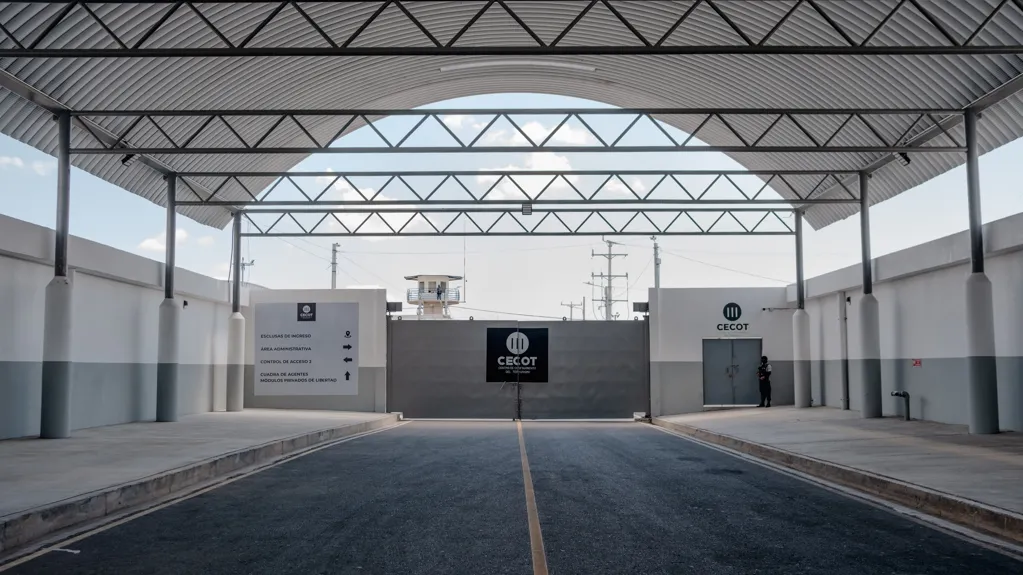It was an opening salvo in what is likely to be the decisive legal battle over the president's attempts to employ the rarely used wartime law as a centerpiece of his aggressive deportation agenda.
The American Civil Liberties Union asked a federal appeals court early Saturday morning to stop President Trump from using a rarely invoked 18th-century law to deport scores of Venezuelans accused of being gang members to a prison in El Salvador.
The A.C.L.U.'s request to the U.S. Court of Appeals for the Fifth Circuit in New Orleans was an opening salvo in what is likely to be the decisive legal battle over Mr. Trump's attempts to use the law, the Alien Enemies Act, as a centerpiece of his aggressive deportation agenda.
The case in front of the appeals court, which emerged from a lawsuit filed in Texas in April, is poised to become the first of its kind to receive a full hearing by the Supreme Court. The justices could get the case later this year and when they do, they will ultimately settle the question of whether Mr. Trump has used the wartime statute lawfully.
For more than three months, the A.C.L.U. has been rushing from court to court across the country, filing lawsuits in an effort to stop the Trump administration from deporting Venezuelans accused of being members of the street gang Tren de Aragua under the Alien Enemies Act.
The act, which was passed more than two centuries ago, gives the government expansive powers to round up and expel citizens of hostile foreign nations, but only at times when war has been declared or during an invasion. The administration has claimed that the presence of Tren de Aragua in United States is tantamount to an invasion and that its members have been acting at the behest of a hostile Venezuelan government.
But that position has been rejected by federal judges in New York, Texas, and Colorado, all of whom have issued separate orders declaring that Mr. Trump has been using the act unlawfully. Only one federal judge, in Pennsylvania, has upheld his proclamation invoking the law.
In its filing to the Fifth Circuit, the A.C.L.U. repeated arguments it made in front of all of those judges, asserting that Tren de Aragua is not working at the direction of a foreign nation and that the presence of its members on American soil comes nowhere close to constituting an invasion.
"The Alien Enemies Act is a wartime authority that cannot be used during peacetime and can only be used against a nation or government," lawyers for the A.C.L.U. wrote. "Presidents have abided those statutory limits for over 200 years. But now, for the first time in history, the government claims it can use this war power against a private criminal organization, to address ordinary crime and unlawful immigration, even though Congress has enacted extensive laws to regulate those acts."
"The government has plenty of tools to address crime and migration," the lawyers added. "The A.E.A. is for something else: war between nations."
The Justice Department is scheduled to file its brief in the case on June 17 and oral arguments are set to be held in New Orleans on June 30.
The case took an unusual path to the Fifth Circuit, which oversees legal matters in Texas, Louisiana and Mississippi.
In mid-April, the A.C.L.U. filed an emergency lawsuit in Federal District Court in Abilene, Texas, after suddenly getting news that the Trump administration was preparing to use the Alien Enemies Act to deport a group of Venezuelans being held at the Bluebonnet Detention Facility in nearby Anson.
After the district court judge failed to act quickly, the A.C.L.U. asked the Fifth Circuit and then the Supreme Court to consider it, arguing that the Venezuelan men were in imminent danger of being sent to El Salvador.
Hours later, the Supreme Court, in an unusual ruling issued well after midnight, put the deportations temporarily on hold. The justices declined to weigh in on the larger question of whether Mr. Trump's invocation of the Alien Enemies Act was lawful, saying only that the government had skirted due process by failing to give the Venezuelan men enough time and opportunity to contest their removal.
Two weeks ago, the Supreme Court issued another decision in the case, maintaining the freeze on the deportations and sending the matter back to the Fifth Circuit. The appellate judges were asked to consider two issues: the substantive question of whether Mr. Trump's use of the act was legal in the first place and a narrower one about how much -- and what sort -- of warning immigrants should be given before being expelled under the law.
The A.C.L.U. is likely to face an uphill battle in its effort to win over the Fifth Circuit, which has a reputation for being one of the most conservative appeals courts in the country.
In fact, one judge on the court, James C. Ho, has already signaled his disdain for the case.
After the Supreme Court returned the proceeding to him and his colleagues, Judge Ho wrote a highly unusual opinion, saying that the justices should not have stepped into the case to begin with -- let alone kept it going with additional briefings and argument.
"As an inferior court, we're duty-bound to follow Supreme Court rulings -- whether we agree with them or not," he wrote. "We don't have to like it. But we have to do it."
